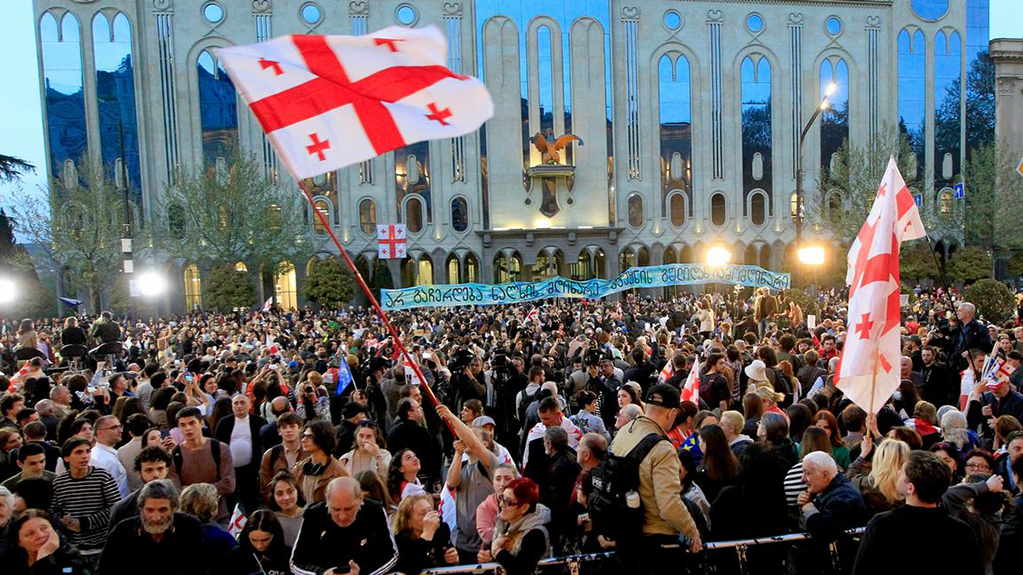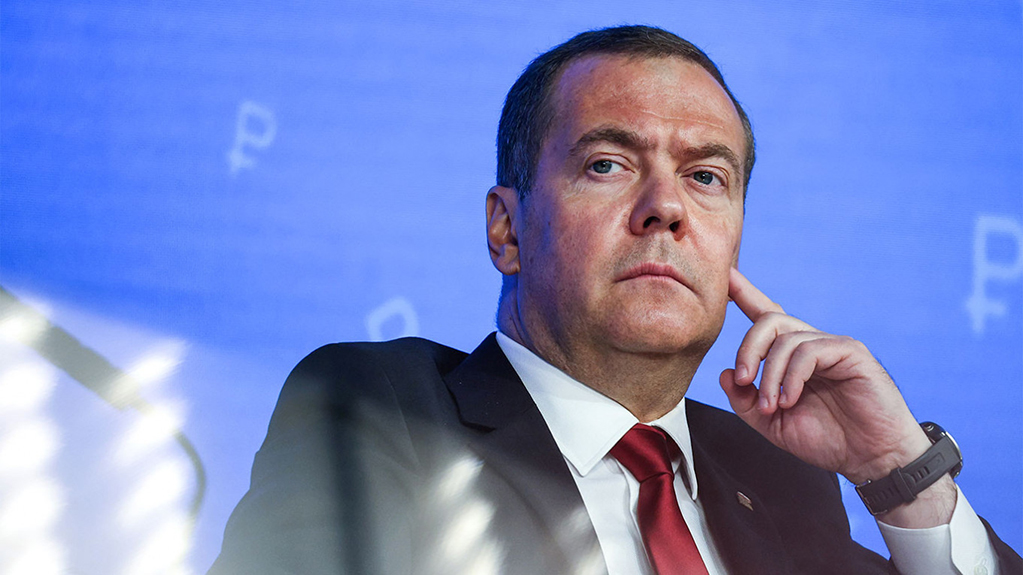The Russian government representatives are responding to the discussion of the draft law on so-called Foreign Agents in the Georgian Parliament and the ongoing protests in Tbilisi. The State Duma chairman, Vyacheslav Volodin, said that those who oppose the adoption of the law are acting not in their own interests, but in the interests of another state.
News
"Critics of the Foreign Agents Law say that the adoption of the bill favors Russia. In this regard, it would be correct to say the following: any country, if it wants to become a sovereign state where the people have the right to determine their own future, is obliged to adopt a law on Foreign Agents, the essence of which is to prohibit external interference in internal affairs.
Such hysteria can only mean that decisions have been made in Washington and Brussels about the overthrow of the current government of Georgia, and money has already been allocated for it, and the adoption of the law can disrupt these plans," says the chairman of the Russian Duma.
The Russian Federation President’s Press Secretary, Dmitry Peskov, once again stated that the ruling Georgian Dream bill should not be called “Russian". He stated that this draft law or the desire to protect Georgia's internal policy cannot be connected with Russia's influence.
"It is not Russian in any way. Today, this is normal practice in many states that do their best to protect themselves from external influence - foreign influence on domestic politics. They are trying to use this internal political process to provoke anti-Russian sentiments. It is unlikely that these impulses will come from Georgia," the Kremlin spokesman said.
The Deputy Chairman of the Russian Security Council, Dmitry Medvedev, responded to the developments in Georgia with an extensive statement. He said that a year ago, the US State Department expressed particular "satisfaction" when the Georgian authorities withdrew the previous version of the law now under discussion because it was incompatible with Euro-Atlantic values.
"Yes, it is true. Values are different. The Black Sea is not the Atlantic Ocean, and Georgia is not Georgia, despite the similarity of the names.
At the same time, the EU is now planning to adopt its own version of the Foreign Agents Act - tougher than even the US's," says Medvedev, noting that a month earlier, a wave of sharp criticism from the West was caused by the law adopted in Kyrgyzstan, which obliges non-governmental organizations with foreign funding to register in a special register.
Medvedev stated that unlike the law in force in the USA since 1938, the activities of foreign agents are allowed by Georgian, Kyrgyz, or "completely loyal Russian law" on foreign agents. "But it quite rightly requires them to be transparent and prevent covert illegal foreign interference in the internal affairs of the state, its economy, and political life."
"We also need to change the law, based on some American rules. For example, to criminalize foreign agents as in the States. And gradually increase the number of foreign agents to thousands, as it is with them. Why are there miserable hundreds with us? Are there worthy candidates? They really are. We have to look for them better!" says Dimitri Medvedev.
On April 17, despite thousands protesting and criticism from international partners, Georgian Dream passed the draft law on so-called Foreign Agents in the first reading. The Prime Minister said that this law will protect the sovereignty of Georgia.

"The draft law envisages only one thing - the annual declaration of money received and spent by organizations carrying out the interests of a foreign power. This is the minimum standard of transparency. As you all know, there is a much stricter standard of transparency in the United States of America. The European Commission has also approved a bill with much stricter standards, and many EU member states have laws corresponding to much stricter standards," said Kobakhidze.
The representatives of the USA and the European Union urge Georgia not to adopt the said law, as it does not correspond to European values and will negatively affect Georgia's progress on the path to the European Union. "Simply this law is not okay. And this is not a European law, and this is not American law," said Ambassador of the European Union, Pawel Herczynski. German Chancellor Olaf Scholz said during the meeting with Irakli Kobakhidze that "the European Union does not have similar legislation. There is a discussion about establishing transparency in various areas, but this is a completely different concept. It has not been decided yet, and most likely, it will not be decided".















